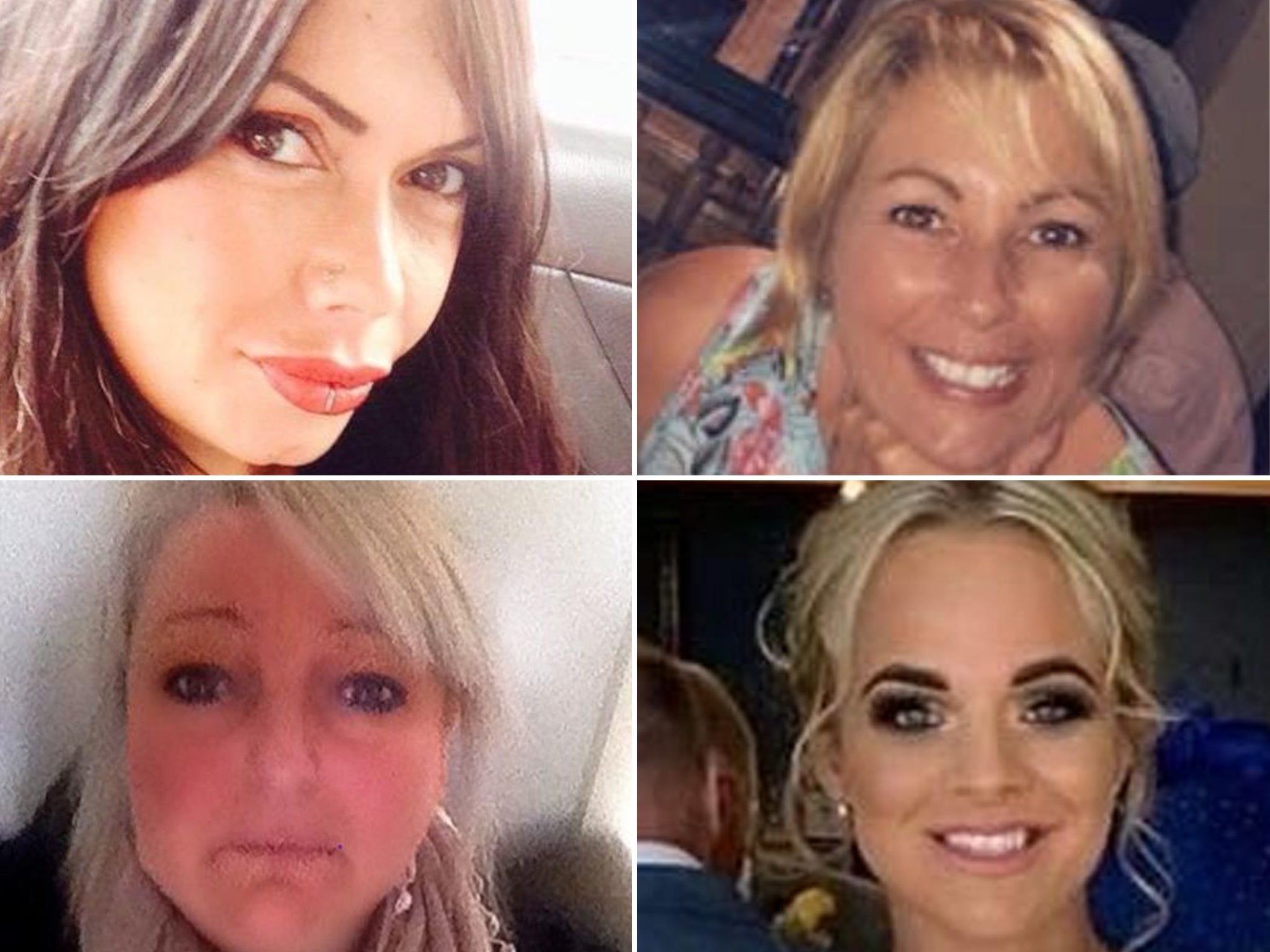Five women found dead in Doncaster: ‘We don’t want women’s deaths to become normalised’
Lockdown and austerity have worsened verbal, physical and economic abuse, a campaigner says

“We don’t want women’s deaths to become normalised,” Amy Cousens tells The Independent. “We don’t want it just to be another news story. People are outraged about what is happening in the community.”
The sudden deaths of five women in less than two months have stunned the town of Doncaster. Five murder investigations are under way in the south Yorkshire town after Amanda Sedgwick, Michelle Morris, Amy Stringfellow, Claire Anderson and a 28-year-old woman, who has not been named, all died in the space of just seven weeks during the lockdown.
Ms Cousens, a local campaigner, has organised vigils to honour the lives of the victims.
“Some of the people who came knew the women,” she adds. “We had 300 or 400 people at the last vigil. When one of the victim’s family members spoke, there was not a dry eye. People are sad but they are also really angry. There is a feeling, we can’t let this go, as a community. The police can’t announce anything because of ongoing investigations.”
The first death was that of Amanda Sedgwick, 49, who was found dead at a property on 19 May. A 48-year-old man was arrested at the scene on suspicion of murder but has since been released under investigation.
Less than a week later, on Sunday 24 May, Michelle Morris suffered a head injury during a disturbance at a property in the Stainforth area. The 52-year-old was taken to hospital for treatment, where she died three days later.
Amy-Leanne Stringfellow, a 26-year-old mother-of-one and personal trainer, was found dead in a house in Balby on 5 June. Terence Papworth, a 45-year-old she had reportedly previously been in a relationship with, has been charged with her murder and is set to stand trial in November.
A 28-year-old woman, who has not been named by police, died three days later. Her body was found by police when they were called to a property in Mexborough in Doncaster on 8 June and two men have since been arrested in connection with her death.
Claire Anderson, a 35-year-old beautician, is the most recent victim. Her body was found by emergency services at a house in Doncaster on 11 July at around 9.30pm. A 38-year-old man who was initially held on suspicion of murder has now been released under investigation.
“Any death within a community is upsetting, but when people are reading about a number of tragic deaths happening where they live, the impact can be much more significant,” Lauren Poultney, Assistant Chief Constable of South Yorkshire Police, told The Independent.
“In acknowledgement of this, I want to reassure residents of South Yorkshire that thorough and extensive investigations are taking place by our dedicated officers in each of these cases. We are continuing to support the families and loved ones of those who have died, with specially trained officers working closely with them, as our officers seek to provide answers about how their loved ones died.”
In the UK, violence against women has soared during lockdown. Fourteen women and two children were killed during the first three weeks, the highest rate for more than a decade, and calls to a national domestic abuse helpline rose by 49 per cent.
“There have been a lot of people laid off from work or furloughed,” Ms Cousens says. “If men already verbally, physically, and economically abuse women, the lockdown can make pre-existing patterns of abuse worse. The lockdown means there are fewer ways for a victim to seek help to escape abuse. Victims need networks of support, which perpetrators work to cut off, and it is easier to do this in the lockdown. We know some abusers have been using coronavirus as an excuse to keep women trapped physically in the home.”
The campaigner, who says she has personal experience of domestic abuse from her childhood, started volunteering in the local domestic abuse sector after learning local services were being decimated by government austerity measures.
“We used to have a specialist domestic abuse service but now it is a generic homelessness service,” she adds. “The last 10 years of austerity have cut domestic abuse services to pieces which has meant that many women and victims of violence have nowhere to flee to any more.”
Cash-strapped shelters for domestic abuse victims escaping abusers across the country have been hit by a spate of funding crises in recent years. Local authority spending on refuges has been cut from £31.2m in 2010 to £23.9m in 2017 – forcing several to close their doors.
“Doncaster is a very poor town,” Ms Cousens says. “Services have cut because of austerity. A high proportion of Doncaster’s population are in low-paid insecure work and many are working in the care sector. If you are low-paid and there are no domestic abuse services in your area, how can you leave your abuser? There is no Citizens Advice bureau here. Legal aid has been cut massively.
“People in Doncaster feel forgotten about.”
